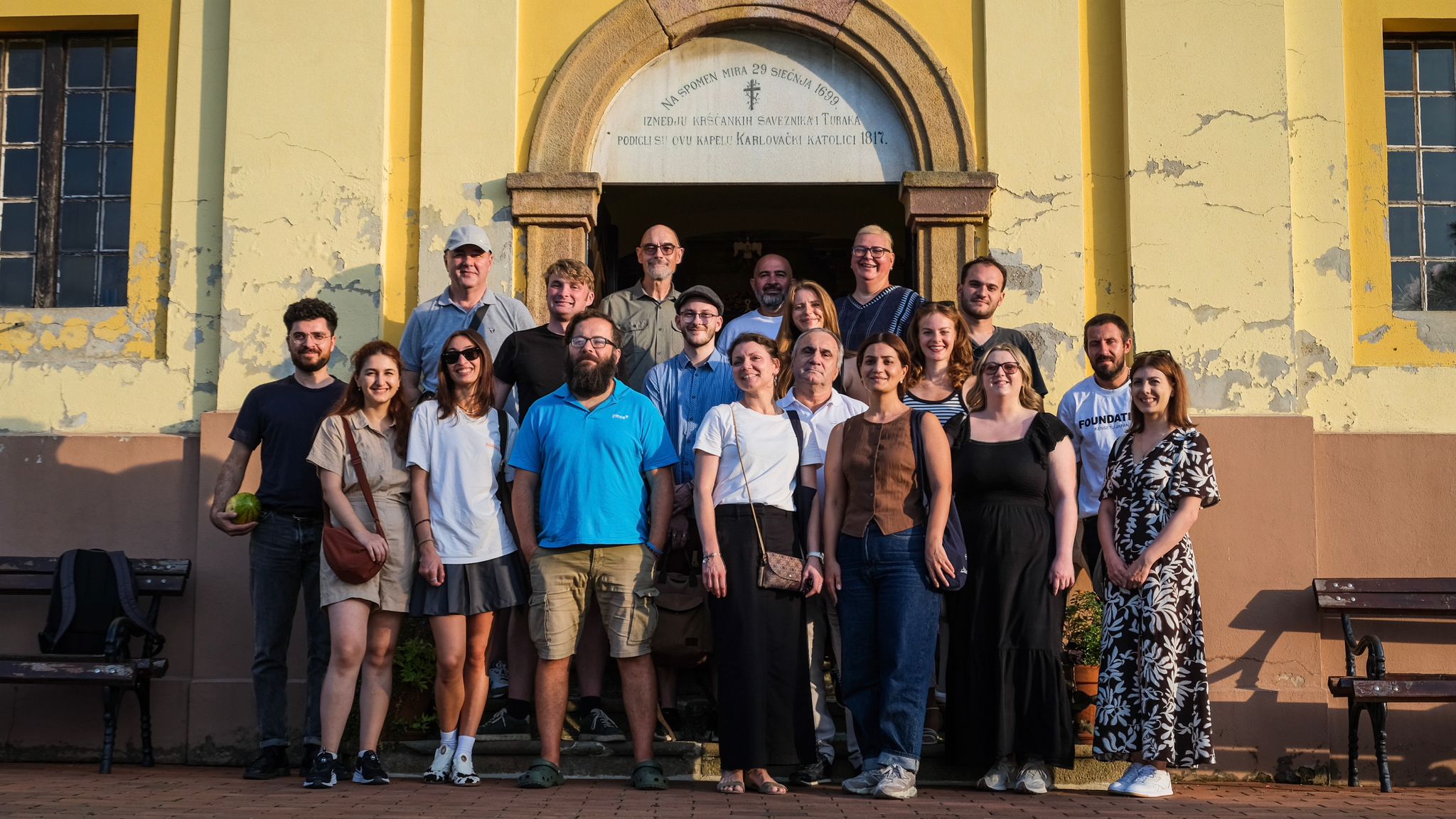Novi Sad, Serbia played host to the Roots Expert Pool Meeting from September 12-15, 2025, bringing together 20 dedicated peace practitioners from nine countries to connect, share and forge a shared vision for a more peaceful future. The meeting was a testament to the power of grassroots action and a commitment to creating a lasting change.
The meeting began with a visit to the EHO NGO, where early arrivals learned about the organization’s impactful programs and projects supporting communities across Serbia. This initial session set the tone for the entire event—a focus on practical, on-the-ground work.
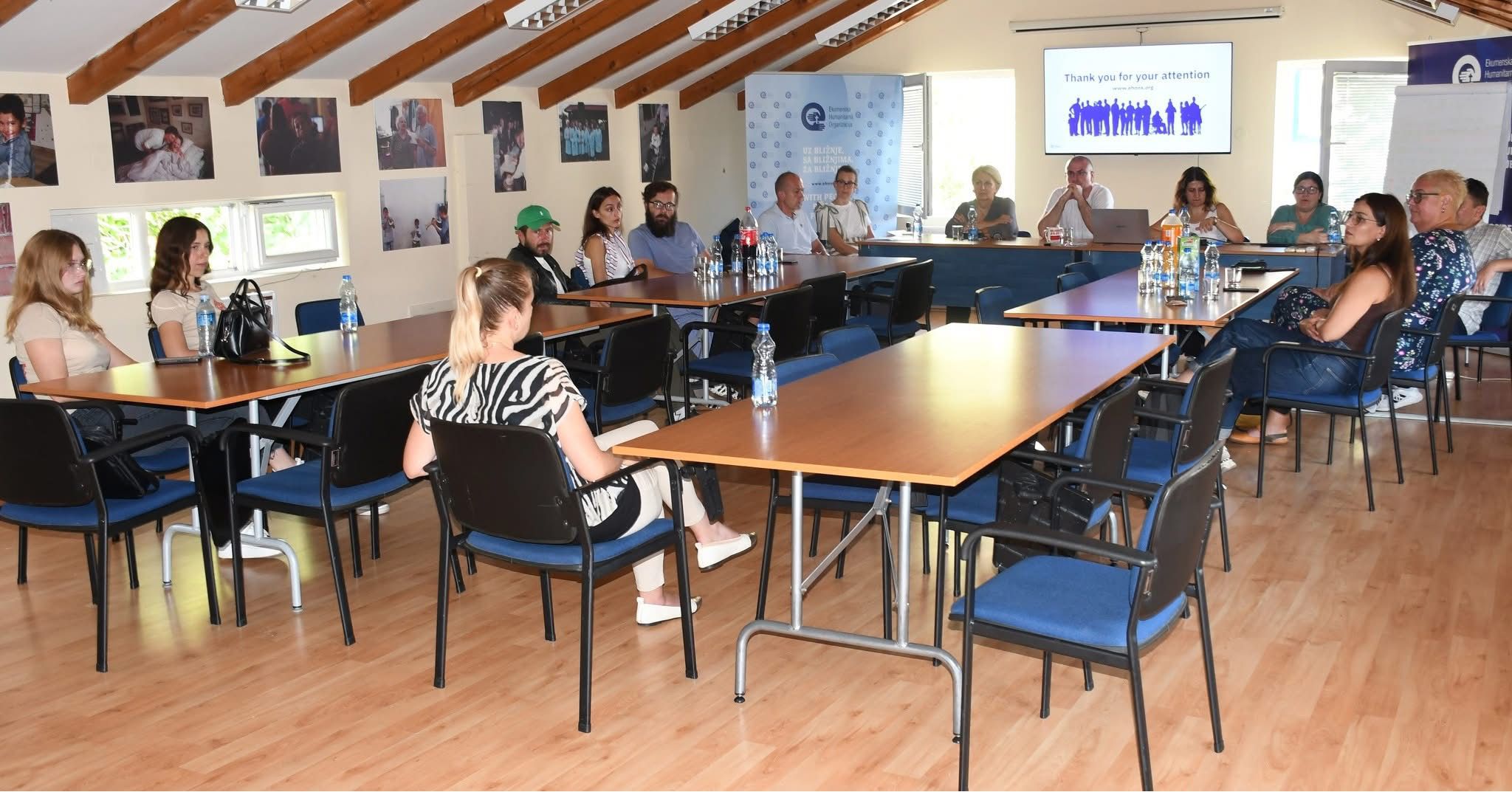
The official opening was led by Vardan Hambardzumyan and featured a moving video prayer created by Irina Berdzenishvili, which included images from Roots activity in Palestine. Vardan’s address underlined the global challenges facing the world today and reinforced the collective commitment of the Roots Pool of Experts to remain true to their core beliefs and peaceful vision for solving problems. It was a powerful reminder that their work is not just a profession, but a deeply held conviction.
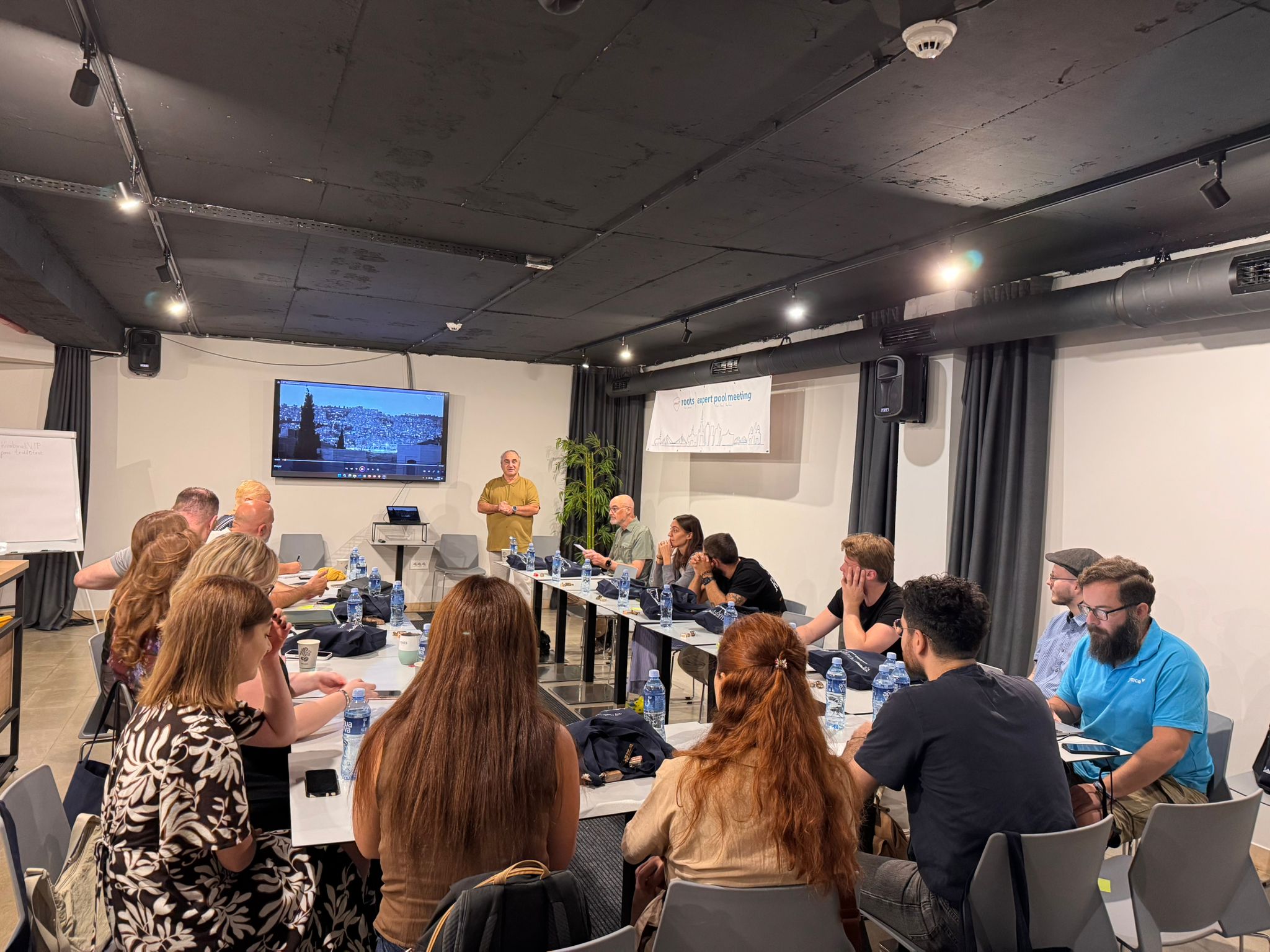
Wolfgang Heinrich provided an overview of the program’s purpose, clarifying a key shift in terminology. The group, originally conceived as an “expert pool,” was re-designated as a “pool of experienced practitioners.” As Wolfgang explained, this change highlights a critical distinction: an expert isn’t necessarily a practitioner, and the term “practitioner” emphasizes the hands-on application of knowledge. This focus on practical experience was a recurring theme throughout the meeting.
Ankica Dragin shared her inspiring work from her time at EHO NGO, specifically a project to map and publish a religious map of Novi Sad. She emphasized the importance of embracing challenging assignments and not being afraid to take on difficult tasks. Her project, which highlighted the rich religious diversity of Novi Sad, later inspired representatives from Dortmund to create a similar map for Football World Cup visitors. Her message resonated with the group: be confident in your practical experience.
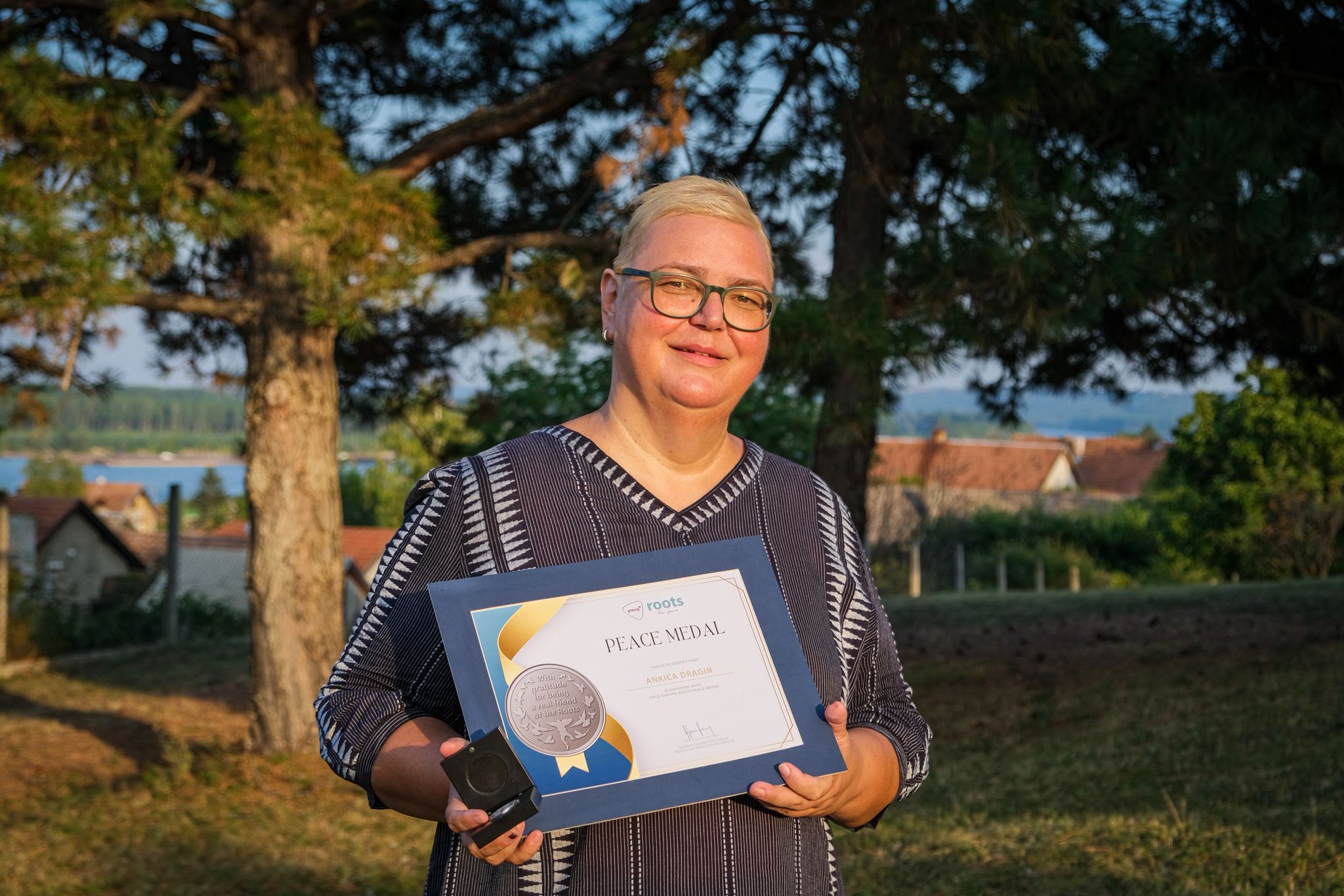
This point was further reinforced by Wolfgang, who shared an example from a “Do No Harm” exercise from his past. He recalled how Mary Anderson, when asked by USAID Director on which universities were involved in a study, responded that it was comprised of 700 practitioners and no academic bodies. Her point, which mirrored the group’s new identity, was that practitioners with their deep understanding of context and subject matter are the true experts.
A major component of the meeting was the collaborative group work. Participants were divided into four-member groups of different nationalities, tasked with developing a shared vision that would unite them. The goal was to create a document that articulated their motivations and the “HOW” of their engagement. This work continued into the following day, culminating in a second assignment: “How can I contribute to building the relationships I envision in my community, neighborhood, and wider society?”
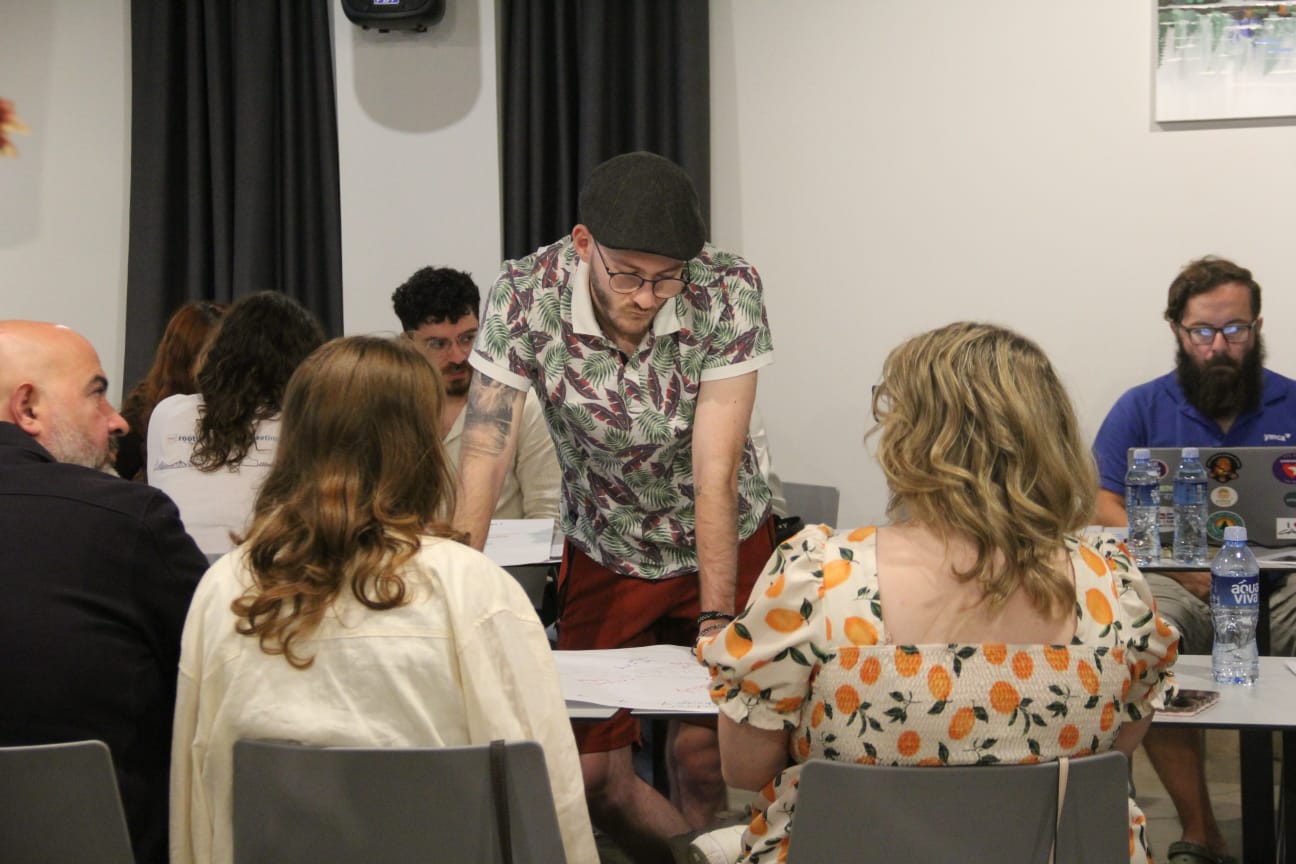
These group sessions were followed by presentations, allowing each participant to share their insights and perspectives. This led to a new assignment: to articulate how they, as a movement of peace practitioners, view their work today. The aim was to have their collective voice heard at a higher level, with the potential of their vision being adopted and becoming part of the legacy of YMCA Europe.
The meeting also included a presentation by Irina on the Roots for Peace project Digital Activism Assessment. She shared findings from a survey of Roots participants, noting that the majority of responses were overwhelmingly positive. Following a coffee break, the groups returned to share their feedback, further shaping their own visions and missions for peace work.
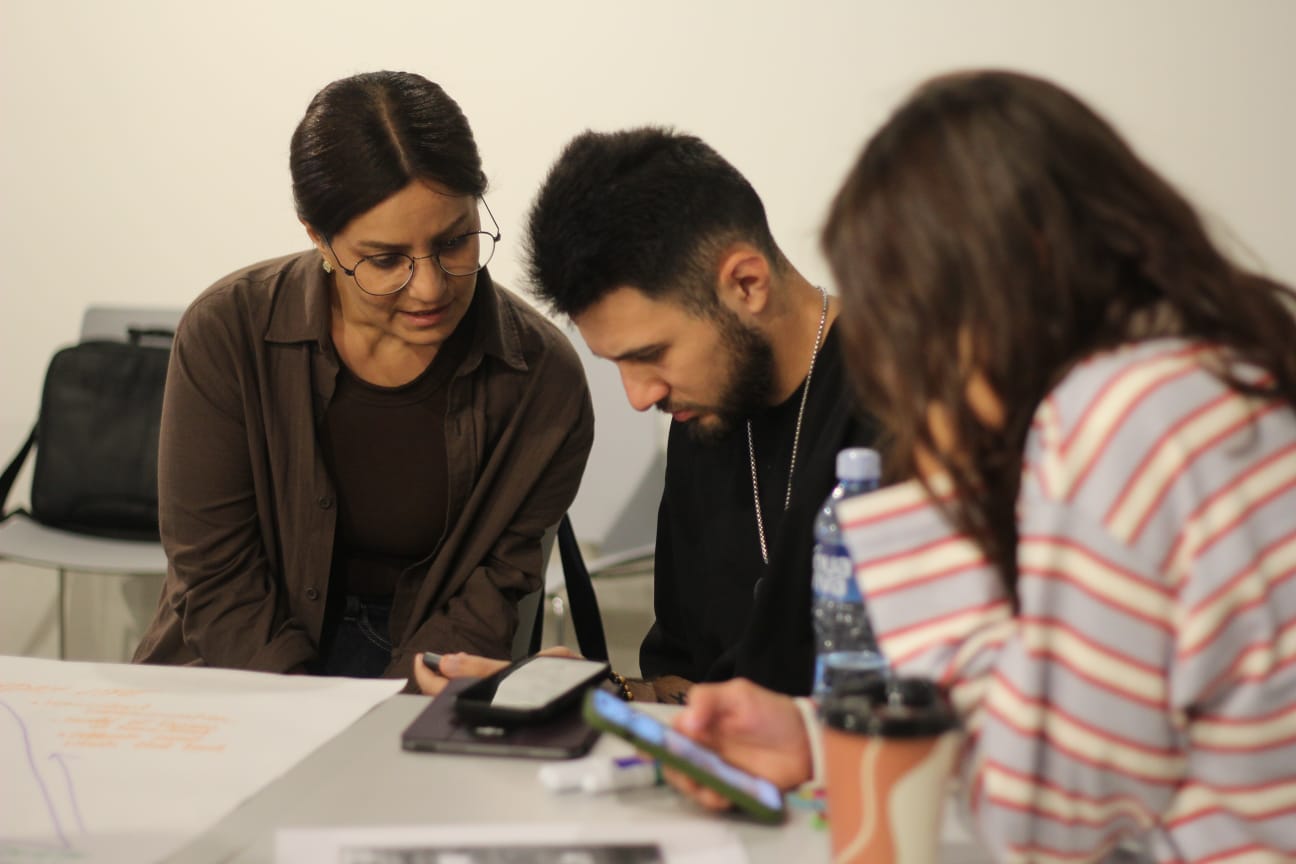
A subsequent workshop on roles and responsibilities provided a structured space for participants to explore their relationships with the Roots team and with each other. They discussed how to practice the “Do No Harm” (DNH) principle in their communities and how to communicate about it to a broader public.
The meeting concluded with Vardan outlining the Roots Roadmap from now until the end of 2027. He highlighted three major tracks:
PWI Scheme: The Peace Work Institute Scheme to be held in Dresden and Tbilisi.
Training: Training DNH multipliers, the European Youth Camp (EYC) application, and other European initiatives like the Michelstadt youth camp.
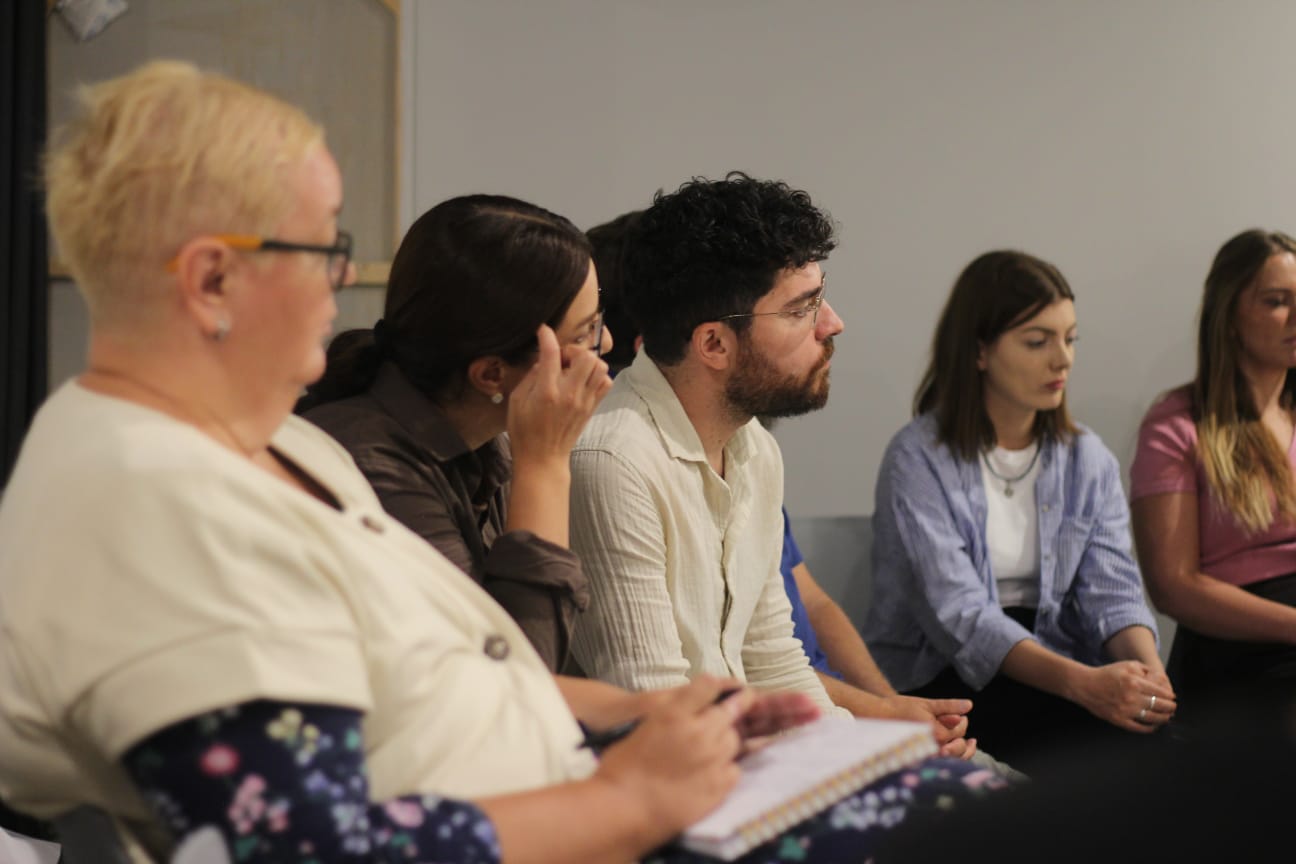
Heritage: The legacy work, including the Roots Peace Award and Brussels initiatives.
There was still time for the evaluation session, with “Rose, Thorn, Bud” exercise collecting the feedback from participants – highlighted the positive aspects, challenges and future potential of the event.
Rose (Positive Aspects):
Participants highly praised the hospitality of the local hosts, which created a welcoming and comfortable environment.
The opportunity to reconnect with peers was a significant highlight, fostering a sense of community and strengthening professional relationships.
Attendees reported an increased awareness of local customs and traditions, enriching their cultural experience.
Thorn (Challenges):
The primary drawback identified by participants was the lack of sufficient time. This limited their ability to fully engage in all activities and discussions.
Bud (Future Potential):
The session revealed a sense of increased confidence among participants, suggesting a positive impact on their professional capabilities.
Attendees generated numerous ideas for future cooperation, indicating a strong desire to continue collaborating and building upon the connections made during the event.
And with just one word to describe the event, it came no surprise when “Happy”, “Home” and “Beautiful People” came as clear favorites…
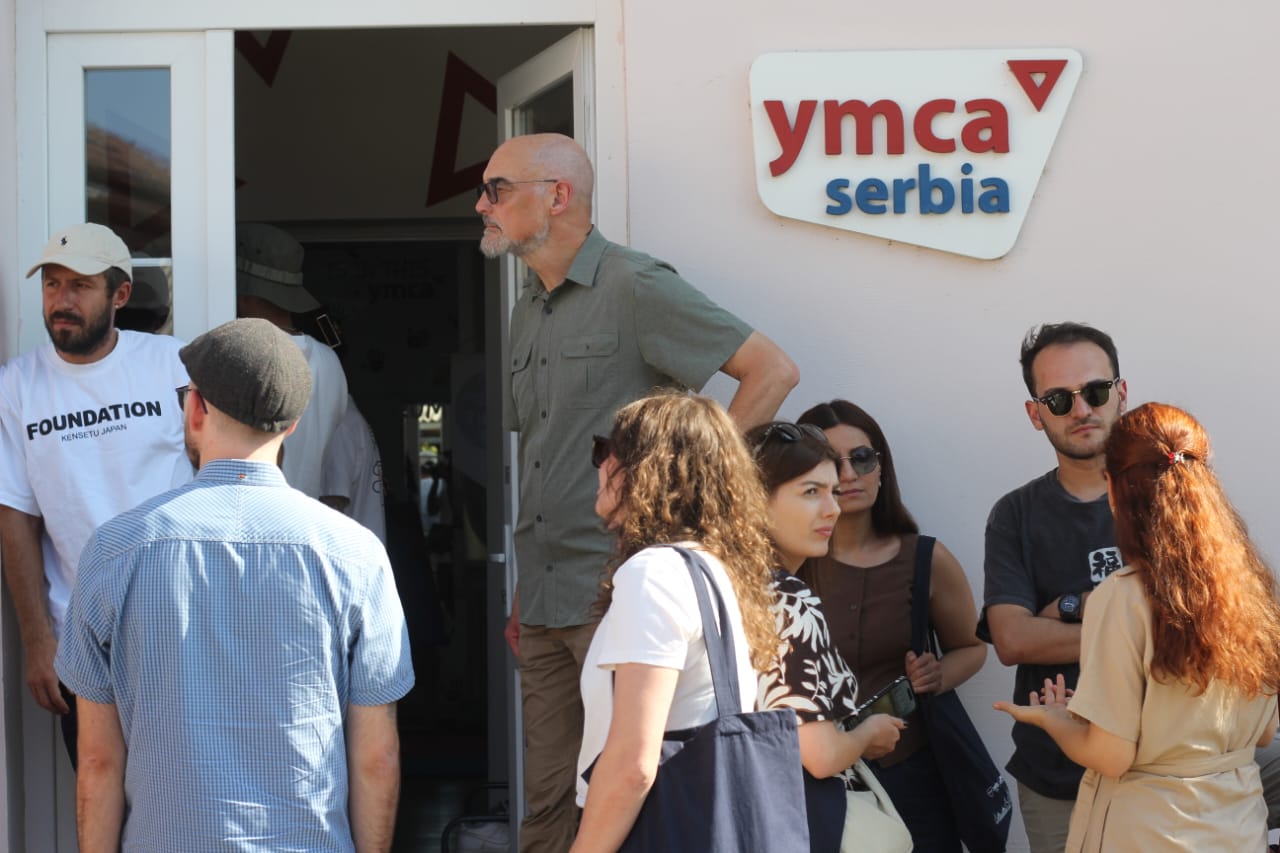
As for the video message with “If you could change one thing to make peace, what would it be?” question to be answered – everyone had something deep and memorable to say… Please wait a bit, we will see them soon.
The Roots Expert Pool Meeting in Novi Sad was more than just a conference. it was a collaborative workshop for change. By focusing on the practical experience of its practitioners, the group solidified its mission to build a more peaceful world, one connection, one community and one shared vision at a time.

